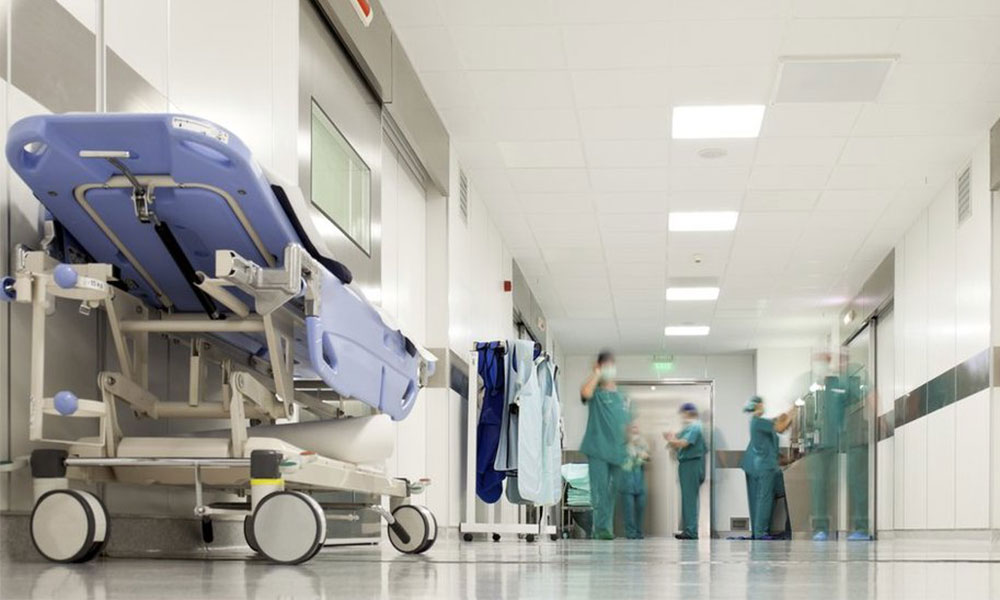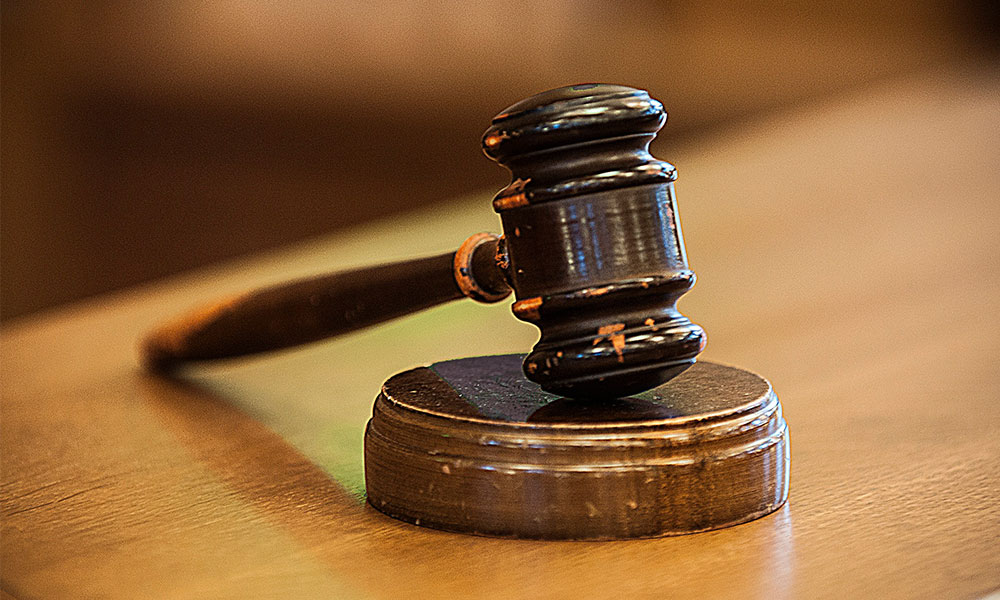Like many others, I listened very carefully to our prime minister addressing the nation on the need to have a proclamation of emergency on Jan 12, 2021, and his further explanation on Feb 4. I have still to be convinced that the proclamation of emergency was truly justified and necessary.
In response, I have written this two-part essay to look a little more closely at some of the specific provisions of the Emergency (Essential Powers) Ordinance 2021 (EO 2021). In this first part, I will look at the medical and logistical provisions. In the second part, I will look at the security and constitutional provisions.
What are the powers under the Emergency (Essential Powers) Ordinance 2021?
Section 3 gives the government the power to take temporary possession of land, building or movable property.
The Prevention and Control of Infectious Diseases Act 1988 (1988 Act) already provides for wide powers of requisition. Section 26(1) of the 1988 Act provides that: "Whenever it appears to the director-general necessary for the carrying out of any of the provisions of this Act and the regulations made under this Act, he may in writing authorise any authorised officer to requisition temporarily any premises for such period as in the opinion of the director-general is necessary."
The prime minister has argued that the power to requisition premises is needed so that the government can also call on private sector facilities.
Under the latest version of the Prevention and Control of Infectious Diseases (Measures Within Infected Local Areas) (Movement Control) Regulations 2021 ('Regulations'), made pursuant to the 1988 Act, section 15 entitled 'Directions of Director-General' states: "The director-general may issue any directions in any manner, whether generally or specifically, to any person or group of persons to take such measures for the purpose of preventing and controlling any infectious diseases within any infected local area."
The power is clearly very widely framed - "any directions", "any manner", to "any person or group of persons". It would not be difficult to argue that such directions could include directions to take over the premises of private medical facilities, private medical laboratories and the factories of manufacturers of licensed medical supplies. This power has been there from the very first version of these regulations issued in March 2020.
Section 4 of the EO 2021 deals with the demand for the use of resources. It gives the government the power to demand the use of resources, including human resources and controllers or managers of human resources. The prime minister has argued that another reason why the proclamation of emergency and the subsequent EO 2021 are needed is so that private hospitals and their staff, or even factories and their production workers, could be pressed into national service.
As already mentioned above, Section 15 of the regulations would allow the director-general to give directions to "any person or group of persons" to "take such measures for the purpose of preventing and controlling any infectious diseases within any infected local area".
This is sufficiently wide for the government to go to every state and federal territory and demand that doctors, nurses and other medical personnel in private hospitals join in any treatment or mitigation efforts. It would also be sufficiently wide for the government to go to factories and demand that they produce certain types of equipment or goods.

If this is not enough, there are provisions in the Private Healthcare Facilities and Services Act 1998 (1998 Act) that could be invoked. Section 105(1) of the 1998 Act deals with social or welfare contribution. It provides that, "The minister (of health) may prescribe the type of social or welfare contribution or the quantum of social or welfare contribution that shall be provided, and the manner in which it shall be provided, by any private healthcare facility or service."
Section 105(3) of the 1998 Act stipulates an obligation to respond: "A private healthcare facility or service shall provide the social or welfare contribution of the type and quantum prescribed under this section" (emphasis added).
Thus, in response to a Covid-19 pandemic situation, the law already provides that the government can impose a demand on private healthcare facilities or services to contribute to society. It is up to the government to stipulate the nature of that contribution. It is not outside the scope of the 1998 Act that such contribution could mean having private healthcare facilities or services pressed into national service.
Section 107 of the 1998 Act gives the health minister power to make the necessary regulations, and Section 102 of the 1998 Act gives the minister the power to give the director-general (of health) or any officer appointed under the 1998 Act general directions to further the purposes of the 1998 Act.
Section 5 of the EO 2021 deals with compensation in the event of any requisition of land, building or movable property or demand for resources. Suffice to say that existing legislation that allows for such actions already also provides for assessment and payment of compensation.
Better coordination
Under Section 6 of the EO 2021, directions may be issued for treatment, immunisation, isolation, observation or surveillance. There is a specific reference to Sections 11(3)(a) and (b) of the 1988 Act.
If one were to look into the 1988 Act, Sections 11(1) and (2) already give the minister (of health) the power to give directions on these very same issues: treatment, immunisation, isolation, observation or surveillance. So there is nothing substantively new added by the EO 2021.
Section 8 of the EO 2021provides for the power to exempt healthcare professionals from having to comply with the requirement to have a principal place of practice as part of their annual practising certificate or equivalent. This is so that healthcare professionals could be placed or transferred to different locations should the need arise, especially in cases where there may be a sudden outbreak of the pandemic requiring an emergency response.
A quick look at all the nine pieces of legislation set out in the schedule to the EO 2021 - dealing with doctors, dentists, pharmacists, allied health professionals, medical assistants, nurses, midwives, opticians/optometrists and estate hospital assistants - will reveal that this is not a requirement for all these categories.
To the extent that they are, there are already provisions for temporary service for national purposes for doctors, dentist, or public service for pharmacists. For practitioners in the other categories, namely allied health professionals, medical assistants, nurses, midwives, opticians/optometrists and estate hospital assistants, the respective legislation contains a specific power to make regulations, which in this case could be utilised to make such necessary regulations to allow for flexibility in terms of the place of practice of the practitioner, if that is a requirement for an annual practising certificate or for registration.

So, really, this is a very technical requirement which could easily either be waived or quickly resolved by regulation. It should not be used as a justification for a proclamation of emergency or for the exercise of essential powers pursuant to a proclamation of emergency.
Section 9 of the EO 2021 provides for a hefty penalty for non-compliance. Again, it is sufficient to say that existing legislation dealing with the various powers and provisions already provide for penalties for non-compliance. If increased penalties are required, simple amendments or revised regulations could be introduced without the need for a proclamation of emergency and the EO 2021.
The overall conclusion that one inescapably arrives at, looking at the various sections of the EO 2021 referred to above, is that the essential powers sought already exist within present legislation. The government's argument that the EO 2021 allows for the Yang di-Pertuan Agong to give or expedite the necessary orders or instructions is, with all due respect, not a justification for something as grave as a proclamation of emergency.
The orders or instructions will still need to be drafted and published in the Gazette, so it is doubtful whether there would be any appreciable saving of time. In the face of an international pandemic, everyone can appreciate the need to expedite certain processes and functions without the need for a proclamation of emergency to force their speeding up.
What perhaps is required is for greater and more aggressive and extensive utilisation of the existing powers under existing legislation. There could also be better coordination to arrive at a whole-of-government approach, principally led by medical experts and professionals, and based on medically-related priorities.
Based on this review of the provisions of the EO 2021, it is my respectful submission that the proclamation of emergency was not justified.
(Part two of this article will be published tomorrow.)
ANDREW KHOO is an advocate and solicitor in private practice. He is co-chair of the Bar Council’s Constitutional Law Committee but writes here in his personal capacity. - Mkini
The views expressed here are those of the author/contributor and do not necessarily represent the views of MMKtT.




No comments:
Post a Comment
Note: Only a member of this blog may post a comment.